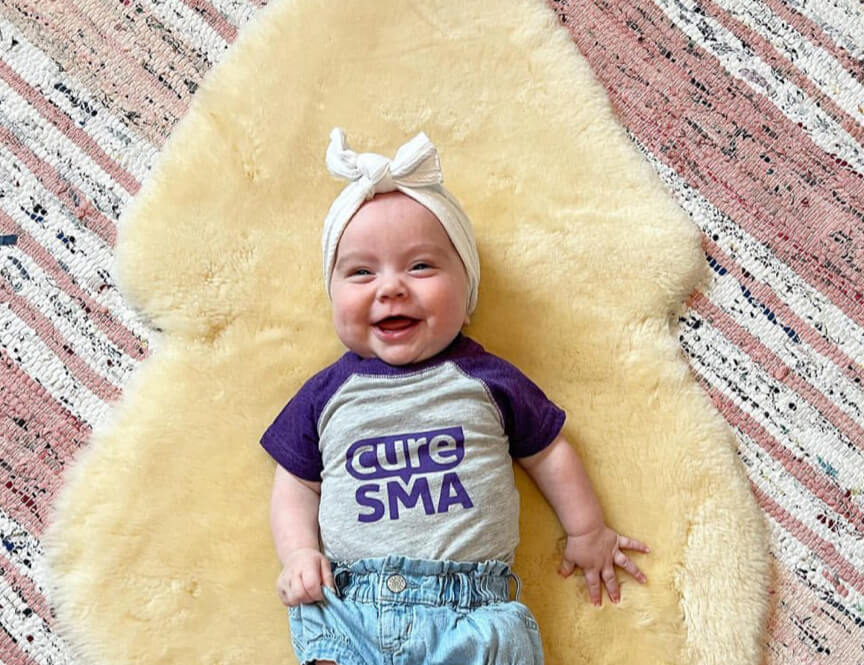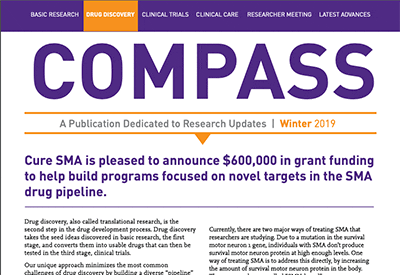The winter 2018 issue of Compass is now available online.
This issue covers Cure SMA’s community survey, and reviews how data is used to improve research, care and coverage in the SMA community.
Cure SMA Community Update Survey
Cure SMA has been collecting data through our database and various projects over the past several years. In 2017, we initiated our first annual community survey to learn more about the clinical health care, family and quality of life of those affected by SMA. Today, there are more than 7,000 patients recorded in the database, making it the largest SMA database in the world.
Through the information gathered in the Cure SMA annual community survey, we intend to communicate our priorities to the SMA community, regulatory agencies, health care professionals, payers, and the research community, as well as provide insights on daily life with SMA and ongoing, related medical changes.
After analyzing the information collected from nearly 700 individuals with SMA, the 2017 community survey highlighted three key priorities of the SMA community, including:
- Fostering a greater understanding of SMA through research
- Emphasis on the urgency for early diagnosis
- Ensuring favorable insurance coverage to limit financial burdens
Action and awareness for the SMA community
The data that patients and families affected by SMA shared with us will help inform future Cure SMA outreach activities and the planning and coordination of health care services. Additionally, annual tracking of the SMA experience will help Cure SMA develop a working natural history of those affected by SMA.
Cure SMA has also used prior surveys and data collection projects to advance the needs of the SMA community and we hope that this survey will help us to continue to improve the outcomes for patients and families.
For More Information
Check out our news section for more information on the annual community update survey.
To read past issues of Compass, visit our research publications page.
Questions on research? Send us an email at [email protected].



